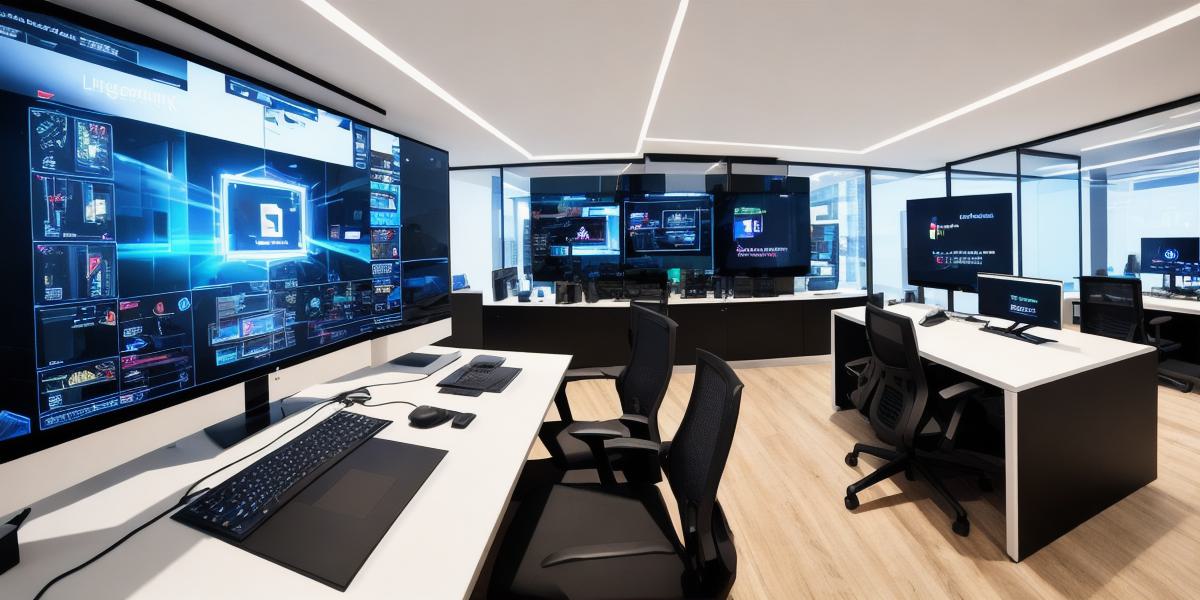Revolutionizing Gaming with Interoperable Blockchain Technology: A Comprehensive Guide for Game Developers
Blockchain technology has been around for a few years now, but it’s only recently that we’ve started to see its full potential in the world of gaming. The decentralized, secure, and transparent nature of blockchain makes it an ideal fit for creating interoperable gaming experiences. In this article, we’ll explore how game developers can use blockchain technology to create immersive, interconnected games that players will love.
What is Interoperability in Gaming?
Interoperability refers to the ability of different systems or platforms to communicate with each other and share data. In gaming, this means that players can play games across different platforms without having to start over or lose their progress. It also means that game developers can create games that are more accessible to a wider audience.
Why Use Blockchain Technology for Interoperability?
Blockchain technology provides the perfect foundation for interoperable gaming experiences. Here are some reasons why:
Decentralization
Blockchain technology is decentralized, meaning that it doesn’t rely on a central authority to function. This makes it ideal for creating interoperable gaming experiences because players don’t need to rely on a single platform to play games. Instead, they can play games across different platforms using their own unique identities and data.
Security
Blockchain technology is secure by design. It uses cryptography to protect data and prevent unauthorized access. This makes it an ideal fit for gaming because players’ personal information and game progress are kept safe and secure.
Transparency
Blockchain technology is transparent, meaning that all transactions are recorded on a public ledger. This creates a tamper-proof record of all in-game activities, which can be used to settle disputes and prevent fraud.
Real-Life Examples of Interoperable Gaming with Blockchain Technology
There are already several examples of interoperable gaming experiences that use blockchain technology. Here are a few:
Cryptokitties
Cryptokitties is a blockchain-based game that allows players to collect, breed, and sell digital cats. Players can use their cryptocurrency wallets to purchase and sell kitties on the open market. The game has been incredibly successful, with over $3 million in sales in just its first month.
Decentraland
Decentraland is a blockchain-based virtual reality platform that allows players to create their own games and experiences. The platform uses smart contracts to enable interoperability between different games and experiences, allowing players to easily switch between them without having to start over.
How Game Developers Can Benefit from Interoperable Gaming with Blockchain Technology
Game developers can benefit from interoperable gaming experiences in several ways. Here are a few:
Increased Accessibility
Interoperable gaming experiences allow players to play games across different platforms, which increases the accessibility of games to a wider audience. This is especially important for smaller game studios that may not have the resources to create separate versions of their games for each platform.
Improved Player Engagement
Interoperable gaming experiences can improve player engagement by creating a more seamless and immersive experience. Players can easily switch between different games and experiences, which can keep them engaged for longer periods of time.
Enhanced Monetization Opportunities
Interoperable gaming experiences can also provide game developers with enhanced monetization opportunities. For example, players can use their cryptocurrency wallets to purchase in-game items and assets, which can be traded on the open market.
FAQs

What is blockchain technology?
Blockchain technology is a decentralized, secure, and transparent ledger that records all transactions on a public ledger. It uses cryptography to prevent unauthorized access and ensure data integrity.
How does interoperability work in gaming?
Interoperability allows different systems or platforms to communicate with each other and share data. In gaming, this means that players can play games across different platforms without having to start over or lose their progress. It also means
